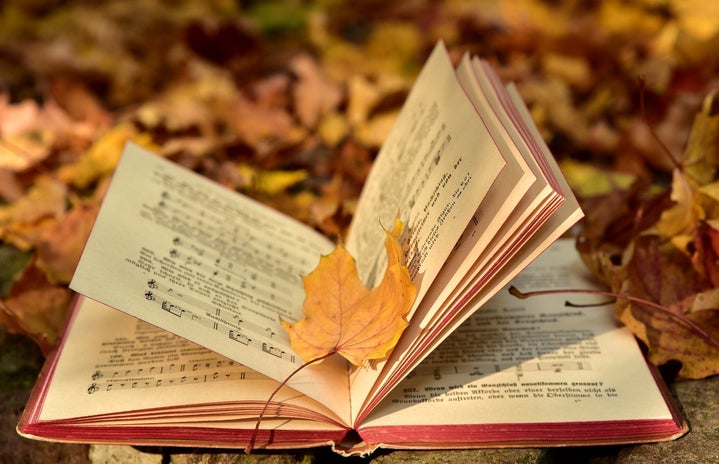When we hit upon sentences like the French Charles Baudelaire’s one – “Any healthy man can go without food for two days – but not without poetry.” – a flash inquiry comes up: why dive into the poetic game makes us feel so good?
The answer is not complicated. In general, artistic tasks have considerable capability of increasing human health and well-being, since they stimulate and connect with different parts of the mind.
“Arts activities can be considered as complex or multimodal interventions in that they combine multiple different components that are all known to be health promoting. Arts activities can involve aesthetic engagement, involvement of the imagination, sensory activation, evocation of emotion and cognitive stimulation.” Reveals the Scoping Review “What is the evidence on the role of the arts in improving health and well-being?” – developed in association with the World Health Organization in 2019.
Being a bridge between sensory and subjective stimulus, the art practice communicates directly with the emotions and can be a powerful ally when it comes to mental health.
“…the aesthetic and emotional components of arts activities can provide opportunities for emotional expression, emotion regulation and stress reduction. Emotion regulation is intrinsic to how we manage our mental health, while stress is a well-known risk factor for the onset and/or progression of a range of health conditions including cardiovascular diseases and cancers.” announce the Review.

Poetry As A Friend Of The Emotions: The Perspective Of A Poet
“Today, my poetry does not suit just me, it suits the world. As a poet, I am an intermediator of afflictions and sensations. There are poets that judge it differently, but I see poetry as it invading me and I let it manifest.”, tells the poet and, among other things, doctor in Communication, Maria Cândida Almeida Castro.
Just like many other writers, Cândida is interested in the poetical text in a special way. She understands that the genre delivers a creative freedom that other styles do not dominate, and it does not apply just for the ones who write poetry, but for the readers too. The facility to connect with the subjective world of the poet and the lector is the key element brought by this literary style.
“To put yourself into the reading that someone offered to the world, where he tried to interpret a feeling, an everyday or a thought is an alternative to find resonance in the way that you think, understand and realize the world. Reading other authors’ poetry is a manner of connecting to another time, the own time of that poetry and getting into what the poet is bringing for you.”
Maria, that appreciates the genre since she was eight years old, recognizes that the poetry assumed a different role in each period of her life, coming to the moment where she released her first book “Quando Fronteira (When Border)” that brought together poems from eighteen years of production – https://quando.candidaalmeida.com.br/.
“I always demonstrated a lot of thoughts, reflections and attempts of materializing the sensations. When I was introduced to poetry, it enchanted me, and I had the need to express myself through it in many places. In the first moment, it was a try to verbalize my relationship with the world and the sensitive, a possible way to the manifestation of the emotions. At the teen age it became a life mate, almost in a confessional mode for me.”
Poetry helped her to connect with her own subjective world and to produce something from her feelings, like a diary. Nowadays, with her book published in an intimate relation with the words, Cândida faces the genre not just as a way of expressing the sensitive, but as a reflection of her own thoughts, capable to achieve society and represent the anguishes and the concerns of the world.
“The poet never stops talking about himself, because he is speaking about the way he sees the world, but I started to feel like a poet in a professional place, writing with a literary conscience.”
For Maria, poetry occupies a place that includes a lot more than just the search for self-knowledge. However, for those who never risked in this genre, it can serve this purpose very well.
Where Do I Start?
“The way is always the reading, not of the text, but of the between the lines of the poetry, and the search for your inner interpretation. Considering that the poetry is something that we appropriate.” express Cândida.
Reading some works that pleases you and trying to identify with what the poet talks about is a good first step.
“Reading out loud is primordial, we need to listen to ourselves as we read poetry. That is why we have so many poetry soirees. Sharing is essential too, if the person is shy, for example, she can share it with someone that is close to her.”
Rereading is also important and can help you find yourself inside that poem. On the other hand, the writing requests a longer time to be developed, seeing that it takes a while for the writer to mature.
“At the first moment, poetry is based on how we interpret our own view, and that is when everyone can write poems and be, in some way, poets. It will represent how we see the world and our feelings.”
Writing some ideas or feelings in a paper and only analyzing and structure it after is also a good option. Poetry as a bridge to the sentimental world can be developed in many ways, and that is why it is capable of becoming a great friend of self-study.
“Poetry is a very important moment, is a daily getaway to this place of the sensitive. Reading poetry is also a manner to distract from your own thoughts and get inside another proposal. The poetry only completes itself on who reads it, so rereading is finding a new poem each time and seeing yourself in a different way.”
Here’s a video to get to know more about Candida’s poetry!
—————————————————————
The article above was edited by Lívia Carvalho.
Liked this type of content? Check Her Campus Casper Libero’s home page for more!



